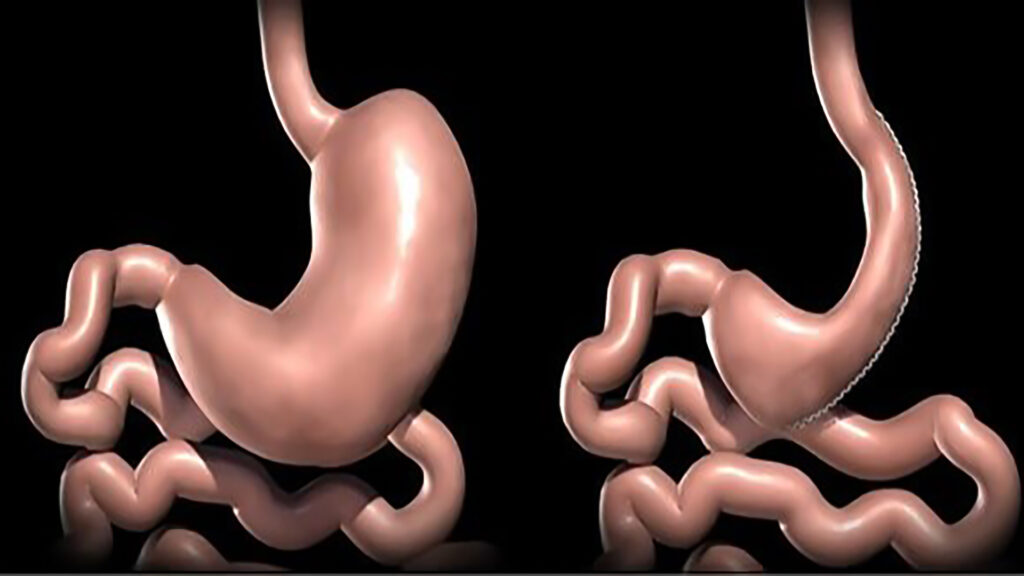Obesity Surgery
Stomach Tube (Stomach Reduction – Sleeve Gastrectomy)
Gastric sleeve surgery is the obesity surgery that is most compatible with the normal structure of the body and has the least unwanted effects after surgery. Since it does not cause malabsorption, it does not cause long-term effects such as diarrhea, bloating, mineral and vitamin deficiency. Since most of the stomach is removed, the significantly reduced volume prevents overfeeding. Another important weight loss effect is through the hormonal pathway. It is associated with a severe decrease in the hunger hormone called ghrelin, which is released from the removed part of the stomach. Gastric sleeve surgeries are performed by laparoscopic (closed) method, without opening the abdomen.
Reflux complaints that may occur after sleeve gastrectomy surgery are resolved with medication. The reflux complaint subsides within a few months.

Gastric Bypass
Gastric Bypass is an operation that was once the most commonly performed operation and has now been replaced by gastric sleeve surgery. In this process, a small stomach with a volume of 30-50 ml is created at the top. The small intestines are connected to this newly created small stomach from a certain distance. The choice of bypass surgeries should be made selectively in patients with special conditions.
In these surgeries, it becomes difficult to break down and absorb food, and a mechanism is created that disrupts absorption and nutrition. In short, the patient eats less and benefits less from what he eats. Since malabsorption causes many problems in the long term, it should not be used as the first choice except in selected patients.
